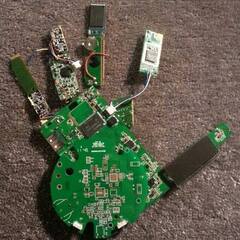Why are these calculations so slow to be performed?

By
AlTech
in Programming
in Programming
Go to solution
Solved by Nineshadow,
1 minute ago, AluminiumTech said:You're using C++ though......
It shouldn't make much of a difference tbh.
Are you by any chance printing the numbers in each iteration of the loop? That would explain why it takes you so long.
-
Topics
-
0
-
0
-
0
-
1
-
2
-
0
-
Anonymous Reviews ·
Posted in Member Reviews0 -
SOROBIN ·
Posted in Graphics Cards7 -
OldFord76 ·
Posted in Troubleshooting1 -
Blawe17 ·
Posted in Troubleshooting2
-
-
play_circle_filled

Latest From Linus Tech Tips:
He Spent 3 YEARS Begging me for a PC. Good Luck Finding it!

.jpg.5cc14cacf0bfa9d58de316927a37ec08.jpg)















Create an account or sign in to comment
You need to be a member in order to leave a comment
Create an account
Sign up for a new account in our community. It's easy!
Register a new accountSign in
Already have an account? Sign in here.
Sign In Now